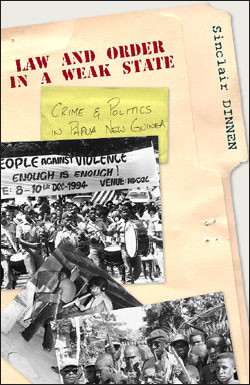Twenty-five years after independence, Papua New Guinea is beset by social, economic, and political problems: poverty and inequality, a young and expanding population, a stagnant economy, corruption, and rising crime. The state has not only failed to contain these problems but has become progressively implicated in their persistence. Escalating levels of violence and lawlessness are seen by many as the most serious challenge facing the young country.
This book examines these problems of order in light of Papua New Guinea s remarkable social diversity and the impact of rapid and pervasive processes of change. Three original and strategic case studies involving urban gangs, mining security, and election violence form the core of the work. Each case study looks at particular forms of conflict, and the responses these engender, across different socioeconomic contexts and geographic locations. Empirical data are analyzed through a common framework that employs material, cultural and institutional perspectives, allowing readers to view the three cases through different theoretical prisms, identify linkages between them, and, in the process, build a larger picture of the post-colonial social order. Law and Order in a Weak State charts not only the problems of crime and lawlessness in Papua New Guinea but also the possibilities for constructive, pragmatic solutions. It will be of great interest to scholars, aid and policy officials, and others concerned with understanding the social complexities and challenges of contemporary Papua New Guinea. pp. 248 illusts #0620 Signed by Author. (inscription)
